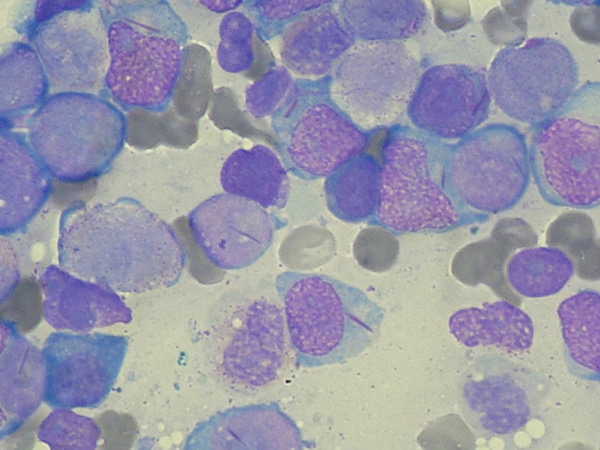Chemotherapy for a Rare Pediatric Cancer
The FDA approved the chemotherapeutic azacitidine for patients with juvenile myelomonocytic leukemia
The U.S. Food and Drug Administration (FDA) has approved azacitidine (Vidaza) for pediatric patients with newly diagnosed juvenile myelomonocytic leukemia (JMML).

Azacitidine is a form of chemotherapy that is structurally similar to cytidine, one of the building blocks of DNA. This feature allows azacitidine to incorporate into the DNA of rapidly dividing cells, such as cancer cells, and block a type of DNA modification that regulates gene expression. This leads to changes in gene expression that trigger cell death.
The approval is based on data from an international, multicenter, open-label phase II clinical trial that evaluated the safety and activity of azacitidine prior to hematopoietic stem cell transplantation (HSCT). The trial included 18 pediatric patients with JMML, 94 percent of whom went on to undergo HSCT.
Nine of the 18 patients had confirmed clinical responses after azacitidine treatment, including three complete and six partial responses. The median time to response was 1.2 months, and the median time to HSCT was 4.6 months.
JMML is a rare blood cancer caused by defects in the maturation of certain white blood cells. The disease primarily affects children under the age of 2 years and accounts for 1 percent of all pediatric leukemias. Approximately 1.2 new cases per 1 million children are diagnosed each year.
The FDA rendered its approval on May 20, 2022.